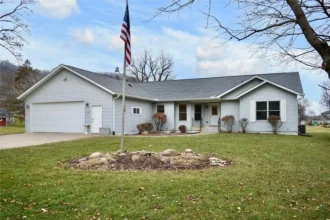When renting a home or flat, tenants trust that the space they live in is safe. One of the most important aspects of that safety is protection from fire. Fires can happen suddenly, and the risk is real. From faulty wiring to unattended cooking, there are many causes of fire in residential properties. This is why landlords have a legal and moral responsibility to protect their tenants with proper fire safety measures, including arranging Fire Risk Assessments London to ensure compliance and safety.
For tenants, understanding fire safety is important, but landlords must ensure the property is well-equipped to prevent fires and protect lives. This blog explores why fire safety matters so much in rental properties and what landlords must provide to meet legal and safety standards.
Why Fire Safety Matters in Rental Properties
Fires can be devastating. They can destroy property, cause serious injuries, and in the worst cases, lead to loss of life. In rental properties, tenants often rely on their landlords to make sure the building is safe and compliant with fire regulations. Many tenants are not familiar with fire safety laws or building maintenance, so the responsibility falls mainly on the landlord.
Fire safety is not just about reacting when a fire breaks out. It’s about prevention, early warning, and providing safe escape routes. A safe home is one where these risks are reduced through proper planning, equipment, and maintenance.
Legal Duties of Landlords
Landlords in the UK are legally required to follow fire safety regulations under several laws, including the Housing Act 2004 and the Regulatory Reform (Fire Safety) Order 2005. These laws aim to protect tenants and ensure rental properties are safe places to live.
Landlords must conduct risk assessments, install smoke alarms, and make sure tenants have access to safe escape routes. For Houses in Multiple Occupation (HMOs), the rules are even stricter. Failing to comply with fire safety laws can lead to fines, imprisonment, and severe damage to a landlord’s reputation.
Smoke and Heat Alarms
One of the most basic and important requirements is the installation of smoke alarms. Landlords must install at least one smoke alarm on every floor of the property. In addition, a heat alarm should be installed in kitchens to detect rising temperatures rather than smoke.
These alarms must be in working condition at the start of each new tenancy. Tenants should be encouraged to test alarms regularly, but it is the landlord’s job to make sure they are installed and functional when the tenant moves in.
Fire Doors and Escape Routes
Escape routes can save lives during a fire. Landlords must make sure that escape routes are clear and accessible at all times. This means keeping hallways, staircases, and exits free from clutter or locked doors.
In some properties, especially HMOs or buildings with multiple floors, fire doors are required. Fire doors are specially designed to hold back smoke and fire, giving tenants more time to escape. These doors must be correctly fitted and not left propped open.
Electrical Safety and Fire Risks
Electrical problems are a major cause of fires in homes. Landlords must ensure the property’s wiring, sockets, and appliances are safe. From 2020, all landlords in England must have their electrical installations inspected and tested by a qualified electrician every five years. A copy of the report must be given to the tenant.
Appliances provided by the landlord, like ovens or washing machines, should also be safe to use. Faulty appliances can spark fires, and landlords should replace any that are damaged or outdated.
Fire Extinguishers and Blankets
While not a legal requirement in all single-family rental homes, providing fire extinguishers or fire blankets can add an extra layer of safety. In HMOs and larger properties, fire extinguishers may be legally required in communal areas.
Fire blankets are especially useful in kitchens and can help stop small fires before they spread. Though it’s the landlord’s duty to supply them where needed, tenants should also know how to use them safely.
Gas Safety and Fire Prevention
Gas appliances, if not properly maintained, can lead to fires or even explosions. Landlords must arrange for an annual gas safety check by a registered Gas Safe engineer. This check ensures all gas appliances, flues, and pipework are functioning safely.
The Gas Safety Certificate must be given to the tenant within 28 days of the check or before they move in. Proper maintenance and early repairs can prevent dangerous situations caused by gas leaks.
Fire Safety in Communal Areas
If the property includes shared areas like hallways or lounges, landlords have a duty to make sure these areas are fire-safe. This includes providing emergency lighting, clear signage, and keeping exits unblocked.
Tenants must be informed about the fire evacuation plan for the building. This plan should include where to go in an emergency and what actions to take if a fire breaks out.
Informing Tenants and Encouraging Safe Habits
Fire safety is most effective when both landlords and tenants work together. While landlords are responsible for providing fire protection systems, tenants must use the property safely.
Landlords should educate tenants about fire procedures, alarm testing, and avoiding common hazards like overloading sockets or blocking exits. Providing a fire safety information sheet at the start of the tenancy is a good practice.
Consequences of Ignoring Fire Safety
Ignoring fire safety regulations puts lives at risk and can lead to serious legal consequences for landlords. Local councils can issue improvement notices or fines. If someone is harmed or killed due to lack of safety measures, landlords may face criminal charges and lawsuits.
Beyond legal consequences, there’s the moral duty of keeping people safe. Ensuring proper fire safety not only protects tenants but also preserves the property from costly damage.
Conclusion
Fire safety in rental properties is not optional. It is a legal and ethical responsibility that every landlord must take seriously. Tenants deserve to live in homes where they feel safe from the risk of fire, and landlords must provide the necessary tools and maintenance to make that possible.
From installing smoke alarms to ensuring clear escape routes, every action taken contributes to a safer living environment. By staying informed and proactive, landlords can protect their tenants, comply with the law, and build trust in their rental relationships. Fire safety is a shared responsibility, but it begins with landlords doing what is right and required, If you want to stay updated with posts like this, please follow us on REELS MEDIA.

















